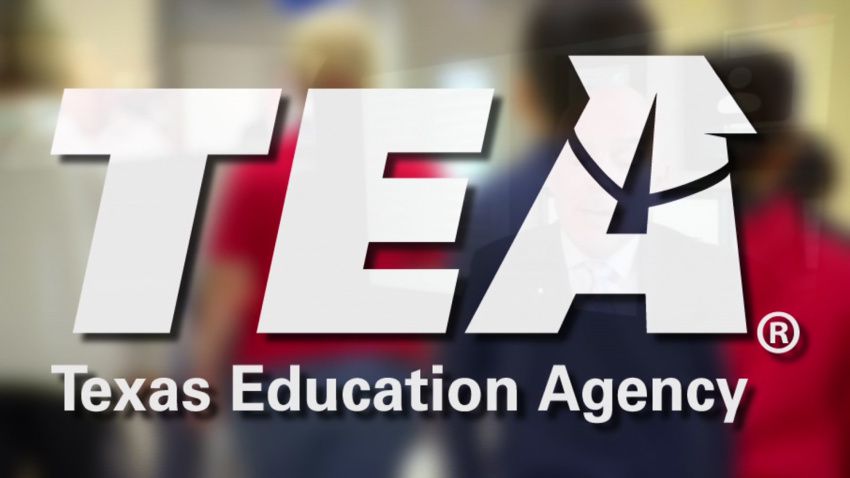TEA to temporarily delay release of 2023 A-F Accountability Ratings
AUSTIN, Texas (KWTX) – The Texas Education Agency on Tuesday announced a temporary delay in the release of 2023 A-F accountability ratings for districts and campuses.
The ratings were originally scheduled to be released on Sept. 28.
The postponement of ratings for approximately one month “will allow for a further re-examination of the baseline data used in the calculation of progress to ensure ratings reflect the most appropriate goals for students,” the TEA said.
Waco ISD, Temple ISD and Academy ISD all recently announced plans to join several other school districts in Texas who filed a lawsuit challenging the Texas Education Agency’s decision to retroactively change performance ratings for the 2022-23 school year, KWTX has confirmed. Texas Commissioner of Education Mike Morath is named as the defendant in the petition filed by seven school districts.
“If the Commissioner is allowed to retroactively apply these new methodologies,” instead of applying the accountability measures already in place, “he will irreparably harm Texas school districts by assigning performance ratings that will artificially lower these ratings even though school districts have worked hard to improve their performance,” the lawsuit states.
The TEA said its final rating methodology will be posted once the analysis is complete. About two weeks after that, A-F ratings will be released to parents, educators, and the public.
As prescribed by statute, A-F ratings must balance multiple objectives to ensure a rigorous, transparent, and fair system, and are based on:
the better of: a) Achievement – how well all students have learned certain academic content – and b) Progress – how much all students have gained academically over the course of the yearalong with (c) Closing the Gaps – how well schools raise academic performance among certain groups of students.
“Maintaining high expectations helps guide our efforts to improve student learning and support,” said Texas Education Commissioner, Mike Morath.
“The A-F system is designed to properly reflect how well our schools are meeting those high expectations, and the adjustments we are making this year will ensure it continues to serve as a tool for parents and educators to help our students.”
Before 2017, cut points and indicators in the accountability system were updated annually, preventing school systems, parents, and the public from easily comparing year-over-year performance of our schools in reaching goals for students across the state. Cut points are the specific numerical targets that districts and campuses must reach in order to receive a particular letter grade.
Since the passage of House Bill 22 in 2017, state law requires cut points and indicators in the accountability system to be updated periodically to achieve the statutory goals of reducing achievement gaps and ensuring Texas is a national leader in preparing students for success after graduating. Given this policy change, cut points and indicators in the A-F system have remained largely unchanged since 2017.
“With unchanged cut points and methodology, data from the last five years has provided educators and the public with an effective way to evaluate improvement. However, to ensure our schools are meeting goals for students, state law requires updates to A-F indicators, which are happening this year as part of an A-F system refresh. During this refresh year, year-over-year comparisons are more difficult to make. To help provide a year-over-year comparison, “what if” re-evaluations will also be publicly released using last year’s data with this year’s cut points and methodology,” said TEA.
Preparations for the refresh began in earnest in October 2021 to ensure the refreshed system remains rigorous, transparent, and fair. TEA engaged and sought input from thousands of interested individual Texans including parents, teachers, superintendents, school board members, community advocates, and business leaders.
As part of the refresh, in January 2023, TEA published proposed cut points and updates to previously published methodology changes. Feedback obtained to that point included recommendations to appropriately account for the impact of the COVID-19 pandemic in evaluating new baseline data, so in the portion of the system that evaluates school progress, TEA proposed setting goals using a baseline of the average level of student growth for the 2018-19 and 2021-22 school years.
However, since that time, statewide growth data for the 2022-23 school year has become available. Analysis of that growth data shows that the 2021-22 growth was more anomalous than expected, so setting baselines that partially incorporate data from the 2021-22 school year may not adequately take into account the impact of the pandemic.
As a result, TEA is delaying the issuance of the final rule for the accountability manual and delaying the issuance of ratings to conduct further analyses of the growth data to inform cut scores in Domain 2a- Academic Growth, and Domain 3-Closing the Gaps.
State law requires that A-F ratings be issued each school year.







